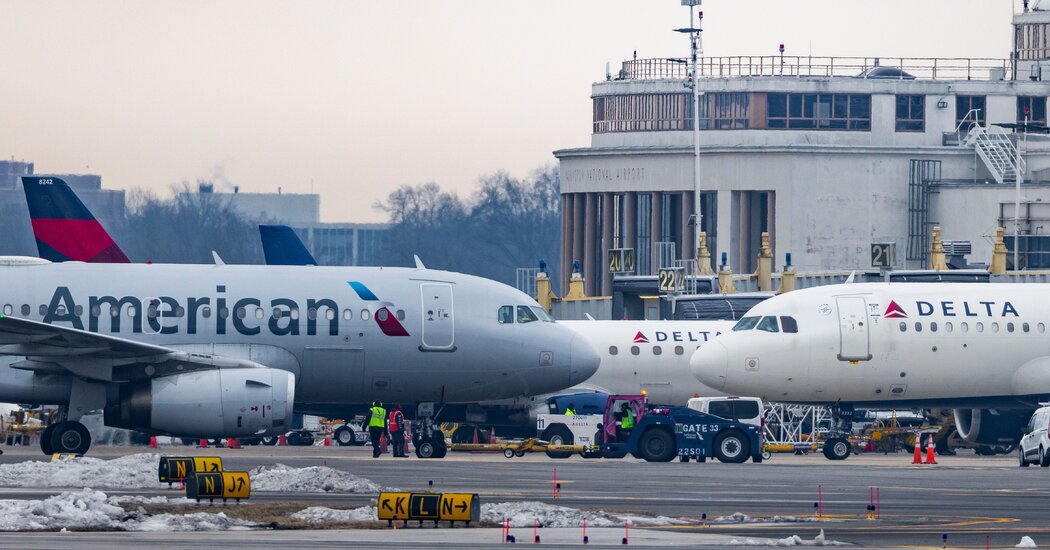A group of workers at Raven Software, a studio owned by Activision Blizzard, said Friday that they were forming a union and wanted the prominent video game company to voluntarily recognize it.
The new union, the Game Workers Alliance, says it includes more than 80 percent of the 34 people in the quality assurance division of Raven, the Wisconsin studio that helps create Activision’s popular Call of Duty game. More than 60 Raven employees walked out in early December, protesting the company’s ending of the contracts of a dozen temporary Raven quality assurance workers, which they said felt abrupt and unfair. Some have been on strike since then.
“This is just the best thing for us and our company going forward, for us to have a voice,” said Erin Hall, a Raven quality assurance worker who helped organize the union. She said she hoped that unionizing would lead to better job security, and that the Game Workers Alliance would be just “the first domino at Activision.”
“I think a lot of us are motivated a lot by the fact that unionization in the games industry hasn’t really happened yet,” Ms. Hall said.
Now, Activision executives will have to decide whether to recognize the union voluntarily or force a vote among employees, which the National Labor Relations Board would oversee. Activision said in a statement that it was “carefully reviewing” the request.
“While we believe that a direct relationship between the company and its team members delivers the strongest work force opportunities, we deeply respect the rights of all employees under the law to make their own decisions about whether or not to join a union,” the company said in the statement. Activision added that it had increased pay, time off and medical benefits for the unionizing workers in recent years.
Activision, which Microsoft on Tuesday said it would buy for nearly $70 billion, has been dealing with months of employee unrest. Before the company incited anger by not keeping the Raven workers in December, employees had been pushing for labor organizing and better treatment since July, when a California employment agency sued Activision, accusing it of fostering a culture where women were routinely sexually harassed and discriminated against.
Jessica Gonzalez, a former Activision worker and one of the organizers of ABetterABK, a group of activists that formed in the wake of the lawsuit to improve conditions at Activision and its Blizzard and King units, said she hoped the Raven union, though small, would galvanize more labor efforts at the company — which has about 10,000 employees — and at other gaming publishers.
“I think it’ll have a ripple effect across the industry,” Ms. Gonzalez said. “I’m hoping the rest of ABK will join our mission and help push this movement forward.”
In contrast to Europe, unions are rare in the North American gaming industry. American employees are often subjected to unexpected layoffs and brutal “crunch,” in which they are required to work long hours and weekends for weeks at a time to ensure games do not miss deadlines.
Interest in unionization has picked up in recent years, with groups like Game Workers Unite, Game Workers of Southern California and the Campaign to Organize Digital Employees, a project from the Communications Workers of America, all working to mobilize gaming employees.
In December, workers at the independent game developer Vodeo Games, which has about a dozen employees, became the first video game studio union in North America.
The Raven employees’ organizing effort was shepherded by C.W.A., a prominent tech, media and communications union.
“A collective bargaining agreement will give Raven QA employees a voice at work, improving the games they produce and making the company stronger,” Sara Steffens, C.W.A.’s secretary-treasurer, said in a statement. “Voluntary recognition is the rational way forward.”
In a news release announcing the union, C.W.A. and the Game Workers Alliance accused Activision of using “surveillance and intimidation tactics, including hiring notorious union busters, to silence workers.”
Ms. Hall and C.W.A. both said the timing, given Microsoft’s blockbuster acquisition of Activision, was coincidental. Microsoft declined to comment on the union organizing.
Some workers view Microsoft’s purchase of the company, which could take a year or more to close, as a path for Activision to improve its workplace culture.
Others see it as an easy out for the company’s embattled chief executive, Bobby Kotick, who has been under fire since last summer and is expected to step down as chief executive once the deal is complete, two people with knowledge of his plans have said.
During a company livestream on Thursday with Julie Hodges, Activision’s chief people officer, Mr. Kotick told employees that he had promised Microsoft that he would “stay as long as is necessary to ensure that we have a great integration and a great transition,” according to a transcript of the conversation viewed by The New York Times.
Mr. Kotick also addressed Activision’s culture problems, saying the Microsoft deal “reinforces” his commitment to reforming the workplace, “and we’ve certainly recognized that we have opportunities for improvement.”
He added that Microsoft “has been on its own journey to improve its workplace, and I think that it’s a shared journey.”


























